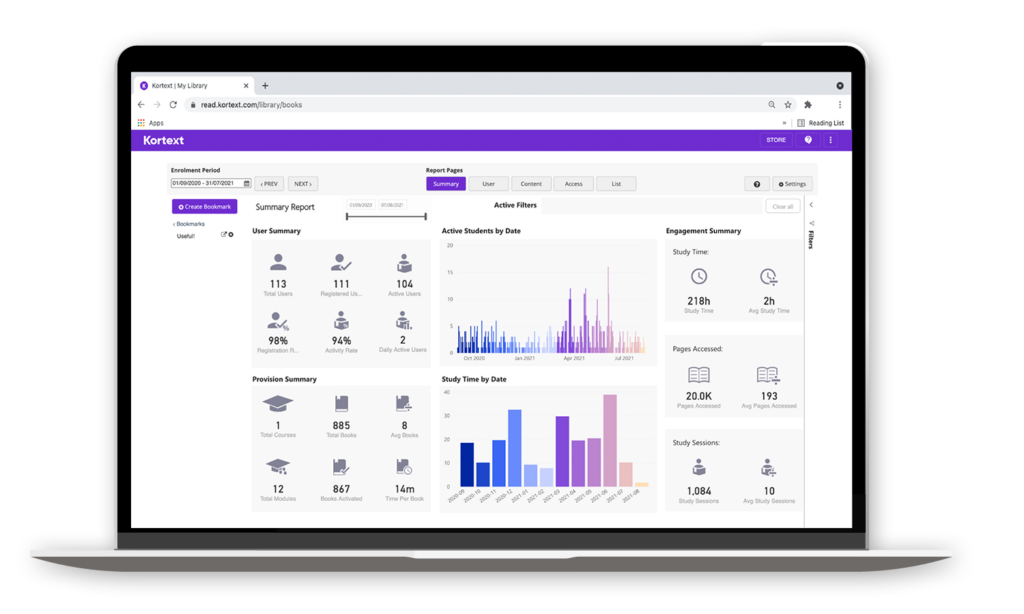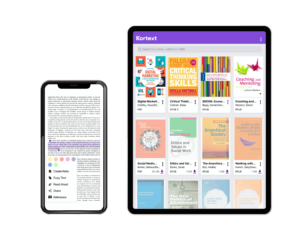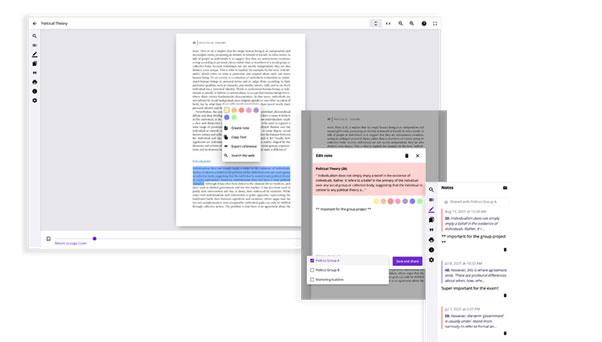The digital learning landscape is evolving at an unprecedented rate and the impact on the students rooted (or sometimes being uprooted) within that landscape can be overwhelming – after all, digitally savvy doesn’t mean digitally native, and universities are serving more than just the TikTok generation, with a student body now more diverse than ever.
It’s understandable then that in a recent Wonkhe survey of university academics commissioned by Kortext, just 30% of respondents saw the potential of learning technology in supporting student mental health and wellbeing.
But does digital technology get a bad rap in education? Can it be a positive force on student mental health and wellbeing?
We think so. Here’s how:
1. It’s all in the data (the student engagement data, that is!)
Asking for help can be difficult – many students struggle on alone and their mental health suffers as a consequence. Some will even drop out of education altogether.
As provider of the UK’s number one learning experience and engagement platform, Kortext delivers insightful student data to universities to support mental health and wellbeing. Our market-leading analytics on digital content usage and student engagement with the Kortext Arcturus platform acts as a leading indicator for student disengagement, providing an opportunity for early intervention which can mean the difference between a student failing or graduating with that first-class degree – a service not available with print books.
With near real-time data available down to individual student level, you can see clearly when engagement levels drop and tailor support to the needs of that individual.

In this instance, digital technology like Kortext affords new opportunities to improve student retention and drive outcomes, which is great for the student and the university.
2. Connecting students to peers and academics
Digital learning is lonely, right? Well, it doesn’t have to be. It’s easy to confuse digital learning with remote learning, but we like to think of it as ‘digitally enhanced learning’ – using digital technology to enrich the student experience.
At Kortext, we do this by providing an eBook and smart study platform that facilitates connection and collaboration, no matter what mode of study is being undertaken. Our group collaboration tool supports knowledge sharing and research-led learning across institutions and even borders, so students can connect with each other and their academics through the Kortext Arcturus platform.
In February this year, Wonkhe and Pearson conducted a student survey that revealed a correlation between students feeling a sense of belonging at university and their mental health, with 1 in 10 students saying they don’t feel like they belong and just 18% of these students saying that they feel a sense of community with others on their course. With this research in mind, whether a course is fully on campus, blended or delivered entirely online, it’s clear that building connections between peers and academics – even at a distance – is invaluable, helping to create that sense of belonging.
3. Affording flexibility
The student demographic is changing and universities are investing significant time and effort into widening access and participation, which will ultimately diversify the study population further. This means student needs and expectations will broaden – and this is where digital technology becomes a driving force for positive change.

Edtech like Kortext has the power to open doors for those who cannot commit to the traditional on-campus university experience, like those with mobility issues, and non-traditional learners such as people with childcare or other care duties to consider. And should the Lifelong Loan Entitled (currently under consultation) be adopted in the UK, we will likely see an influx of learners from all backgrounds and stages of life entering or re-entering education.
Digital platforms like Kortext Arcturus offer flexibility and choice, providing opportunities to access learning content and study anytime, anywhere and on any device. This flexibility can ease the pressure on students, reducing stress and positively impacting their mental health and wellbeing.
4. A more immersive learning experience
Studies over the years have shown that immersive learning experiences go hand in hand with learner motivation – and we all know that when it comes to studying, finding motivation is half the battle. An unmotivated student is likely to be a disengaged student, and disengagement (feelings of failure, being stuck in a rut) can have a detrimental effect on mental health.
At Kortext, we strive to make learning fun and engaging. Our host of smart study tools and accessibility features give students everything they need to deeply engage with their course reading for a more immersive and interactive study experience. From notetaking and sharing to colour coding and in-text searches, these tools help students study efficiently and effectively – we even have a handy citation tool, making reference exports a breeze.
Our student users say it best:
I think that the access to reading materials through Kortext that has been available online has been instrumental in my success in the course so far. I tend to do a lot of my writing late at night when I have a clear head and being able to access these resources on demand has really helped. If these had not been available, I have no doubt that I would not be succeeding on the course in the way that I am.
~ Post graduate student studying at Aston University, UK.
5. Meaningful partnerships
A 2021 survey revealed that 4 in 10 students felt their mental health had deteriorated since starting university, which speaks volumes for why mental health and wellbeing initiatives are so important.
In 2020, Kortext teamed up with student mental health charity, Student Minds, to help support our student users through their studies. During Covid-19, Student Minds created an online hub called Student Space to provide additional support for students struggling with anxiety, isolation and health and study worries related to the pandemic. Student Space now signposts students to national support services, useful information and a direct 24/7 text support service. Through our partnership, students can now access Student Space via their Kortext bookshelf at the point of need, so asking for help doesn’t feel so daunting.
Confronting student mental health, step by step
Of course, the challenges around student mental health and wellbeing cannot be solved by digital technology alone, but every step counts and with the right systems and platforms in place to support the student body and enhance teaching and learning, we believe digital technology like Kortext can make a real difference.






